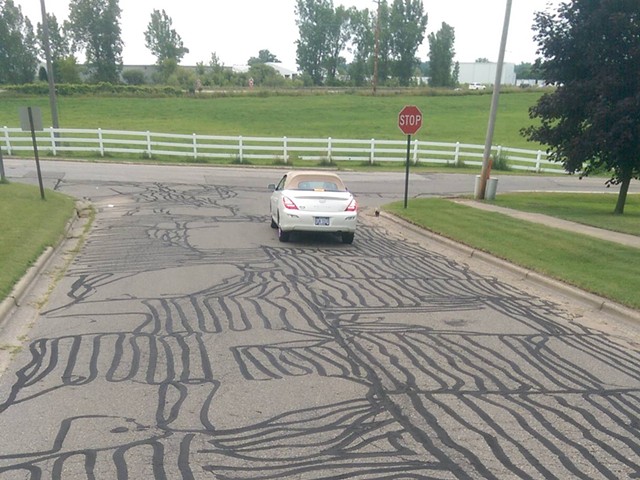Detroit to get bike-sharing program
[
{
"name": "GPT - Leaderboard - Inline - Content",
"component": "35519556",
"insertPoint": "5th",
"startingPoint": "3",
"requiredCountToDisplay": "3",
"maxInsertions": 100
}
]
An article in the Detroit Free Press notes that a program is poised to begin setting up bike stands in certain neighborhoods near downtown where users may rent them.
The piece, by Eric D. Lawrence, explains that the program, called Detroit Bike Share, will likely begin with 350 bicycles at 35 stations around the greater downtown area. The program will be funded by $1 million from the Federal Highway Administration through its Transportation Alternatives Program. The grant was recently announced by the Southeastern Michigan Council of Governments, and represents a tiny sliver of the money SEMCOG sluices into local road projects. The story quotes Detroit Bike Share's lead organizer as saying Philadelphia's Indego program, which launched this spring with 500 bikes and 60 stations, offers a good example for Detroit.
The piece prompted some predictable comments about theft and vandalism. Right up top appeared a comment from former Detroit News columnist Pete “Get Off My Lawn” Waldmeir:
We’re used to people using social networking to make jokes about stolen bikes in Detroit. When we proposed Detroit might benefit from a garage with space for 5,000 bicycles, like what was recently built in Delft, Netherlands, one commenter on MT’s Facebook page posted: “If you wanna steal a bike, youd [sic] have an excellent selection to choose from.” Another comment on the article declared that any such garage would be a “thieves’ paradise.”
But it’s important to remember that Detroit doesn’t have a copyright on vandalism and theft. (Though we might have cornered the market on smart-mouthed suburban residents who love to heap scorn on their central city.) These are problems bike-sharing programs have dealt with the world over, even in those sensible European cities with low crime rates, such as Copenhagen and Helsinki, where programs ended in failure due to wrecked and stolen bikes.
But in the last 15 years programs have cropped up all over the world, largely thanks to improved electronic technology, such as helpful smartphone apps, RFID chips, and kiosks that successfully lock the bikes in place when not in use. Users will often access the bicycles using a credit card, which helps deter theft for obvious reasons.
Then there are all sorts of lessons learned from past failures. The bicycles are often designed with nonstandard parts, which makes the stealing and re-selling of individual bike parts impossible. Stations are placed in very visible locations with plenty of foot traffic. Some are even surveilled.
Since the goal of the program is to help give people a bit of added range — say, a half- hour’s bike ride from downtown — the effort will likely end up with a fleet of bikes that you wouldn’t want to ride for more than a half-hour anyway: very heavy, with specialized frame designs, proprietary components, undesirable color schemes, and single-speed gearing.
It’s an issue Detroit Bike Share highlighted in its feasibility study, citing “the potential for a somewhat higher rate of theft and bike replacement in Detroit given its high level of poverty.”
So, yes, somebody is already thinking these issues through — which means there's really no need to try to warn anybody in the comments section with your genius-level insights about Detroit and crime.





